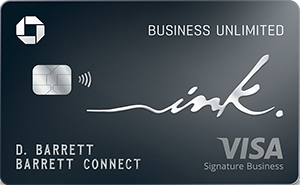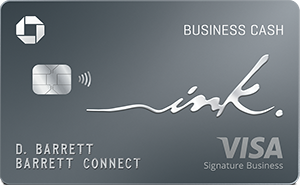For many people, the freelance lifestyle is ideal. The freedom to choose what projects you work on, greater control over your earnings, and a more flexible schedule can make it worth transitioning from employee to self-employed freelance worker.
If you’re exploring making a career move like this, get your finances in order first. Considering your finances early in the process can give you more control over your earnings and budget. Here are a few money moves I made before becoming a full-time freelancer.
1. Freelanced part-time while earning full-time income
Before diving into the freelance world full-time, I suggest starting part-time. One money move I made was freelancing part-time for over a year while I continued working full-time and collecting a paycheck. Doing this gave me more flexibility to experiment with different projects and allowed me more time to grow my client base because I could afford to keep paying all my bills.
It also gave me the time and experience to decide whether freelancing suited me. If you jump all in without having the added protection of a regular paycheck hitting your checking account, you may face financial struggles if your freelance business grows slower than planned. Consider doing some part-time work in your free time to protect yourself financially.
2. Eliminated my debt
I started freelancing full-time when I was 29. Luckily, I had minimal debt by my late 20s. But I made sure to eliminate it all before I became a full-time freelancer. Having no debt allowed me to keep my living expenses and monthly bills lower. Because of this, I felt less pressure as I took steps to grow my business and increase my earnings.
As a side note, I was renting at that point in my life. Had I owned a home, I would have been comfortable becoming a full-time freelancer while having mortgage debt. But I recommend eliminating other high-interest debt, like credit card debt, before you dive all in.
Why a Business Credit Card Could Transform Your Small Business
These business credit cards that offer a convenient and efficient way to separate personal and business expenses, simplifying accounting and tax reporting.
Additionally, business cards can provide valuable perks such as rewards points, cashback, and expense tracking tools, enhancing financial management and the potential to help save money in the long run.

Ink Business Unlimited® Credit Card |
Earn $750 bonus cash back Earn $750 bonus cash back after you spend $6,000 on purchases in the first 3 months from account opening. |
Earn unlimited 1.5% cash back on every purchase Earn unlimited 1.5% cash back on every purchase made for your business |
Purchases: 0% Intro APR on Purchases, 12 months Balance Transfers: N/A
Regular: |
|

Ink Business Cash® Credit Card |
Earn up to $750 bonus cash back Earn $350 when you spend $3,000 on purchases in the first three months and an additional $400 when you spend $6,000 on purchases in the first six months after account opening. |
Earn 5% cash back in select business categories Earn 5% cash back on the first $25,000 spent in combined purchases at office supply stores and on internet, cable and phone services each account anniversary year. Earn 2% cash back on the first $25,000 spent in combined purchases at gas stations and restaurants each account anniversary year. Earn 1% cash back on all other card purchases with no limit to the amount you can earn. |
Purchases: 0% Intro APR on Purchases, 12 months Balance Transfers: N/A
Regular: |
3. Researched employer-provided benefits
Many people work traditional jobs because of the benefits provided. These may include health insurance, paid time off, and access to a retirement program. But as a self-employed freelancer, you’re responsible for covering the benefits that an employer might typically provide.
I researched healthcare costs and retirement plan options before becoming a full-time freelancer to understand how my finances would be impacted by having to cover these additional expenses.
I recommend doing this, especially if you’ll be paying for health insurance. You may be surprised at how expensive it is to self-insure. However, knowing these costs in advance can help you set income goals and may motivate you to put more effort into your business in the early days.
4. Established an emergency fund
It’s beneficial to have an emergency fund. No matter where you are in your freelance journey, you will likely experience income fluctuations and slow periods where work isn’t as plentiful as usual. With extra money in the bank, you can weather difficult times like this.
Before freelancing full-time, I stashed some money in my savings account. Though I didn’t have much, having some extra money gave me more confidence. If I had to do this step over, I’d have saved even more money before I transitioned to being a full-time freelancer.
Here’s a tip: Keep your money in an interest-earning bank account so you earn interest while your money sits in the bank. Review our list of the best business bank accounts.
Don’t ignore your finances
Whether you’re already freelancing part-time or are still working a full-time job and are considering your options for a career move, always keep your finances in mind. As a business owner, your finances will look different. You want to make informed decisions that allow you to feel confident about your personal and professional financial health.
Alert: our top-rated cash back card now has 0% intro APR until 2025
This credit card is not just good – it’s so exceptional that our experts use it personally. It features a lengthy 0% intro APR period, a cash back rate of up to 5%, and all somehow for no annual fee! Click here to read our full review for free and apply in just 2 minutes.

